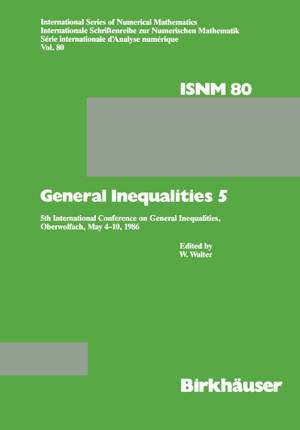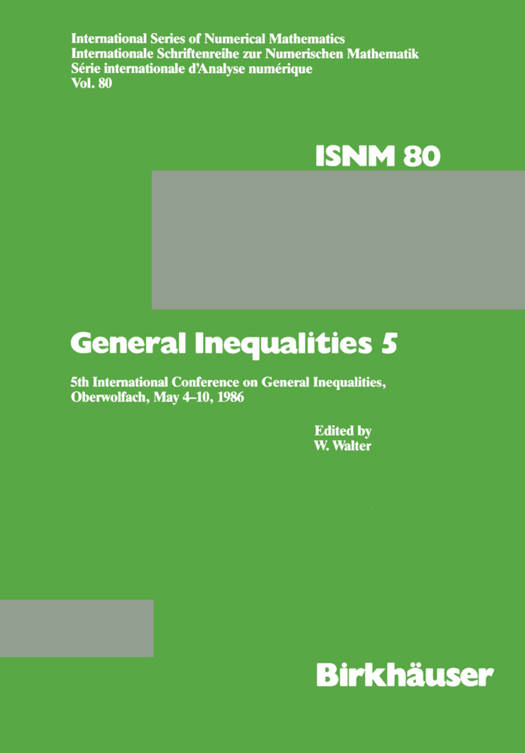
- Afhalen na 1 uur in een winkel met voorraad
- Gratis thuislevering in België vanaf € 30
- Ruim aanbod met 7 miljoen producten
- Afhalen na 1 uur in een winkel met voorraad
- Gratis thuislevering in België vanaf € 30
- Ruim aanbod met 7 miljoen producten
Zoeken
General Inequalities 5
5th International Conference on General Inequalities, Oberwolfach, May 4-10, 1986
Walter
€ 84,45
+ 168 punten
Omschrijving
The Fifth International Conference on General Inequalities was held from May 4 to May 10, 1986, at the Mathematisches Forschungsinstitut Oberwolfach (Black Forest, Germany). The organizing committee consisted of W.N. Everitt (Birmingham), L. Losonczi (Debrecen) and W. Walter (Karlsruhe). Dr. A. Kovacec served efficiently an'd enthusiastically as secretary to the con ference. The meeting was attended by 50 participants from 16 countries. In his opening address, W. Walter had to report on the death of five colleagues who had been active in the area of inequali ties and who had served the mathematical community: P.R. Beesack, G. Polya, D.K. Ross, R. Bellman, G. Szego. He made special mention of G. Polya, who had been the last surviving author of the book InequaZities (Cambridge University Press, 1934), who died at the age of 97 years and whose many and manifold contributions to mathematics will be recorded elsewhere, in due course. Inequalities continue to play an important and significant role in nearly all areas of mathematics. The interests of the participants to this conference reflected the many different fields in which both classical and modern inequalities continue to influence developments in mathematics. In addition to the established fields, the lectures clearly indicated the importance of inequalities in functional analysis, eigenvalue theory, con vexi ty., number theory, approximation theory, probability theory, mathematical prograrnrning and economics.
Specificaties
Betrokkenen
- Auteur(s):
- Uitgeverij:
Inhoud
- Aantal bladzijden:
- 482
- Taal:
- Engels
- Reeks:
- Reeksnummer:
- nr. 80
Eigenschappen
- Productcode (EAN):
- 9783764317997
- Verschijningsdatum:
- 1/01/1987
- Uitvoering:
- Hardcover
- Formaat:
- Genaaid
- Afmetingen:
- 230 mm
- Gewicht:
- 1109 g

Alleen bij Standaard Boekhandel
+ 168 punten op je klantenkaart van Standaard Boekhandel
Beoordelingen
We publiceren alleen reviews die voldoen aan de voorwaarden voor reviews. Bekijk onze voorwaarden voor reviews.











